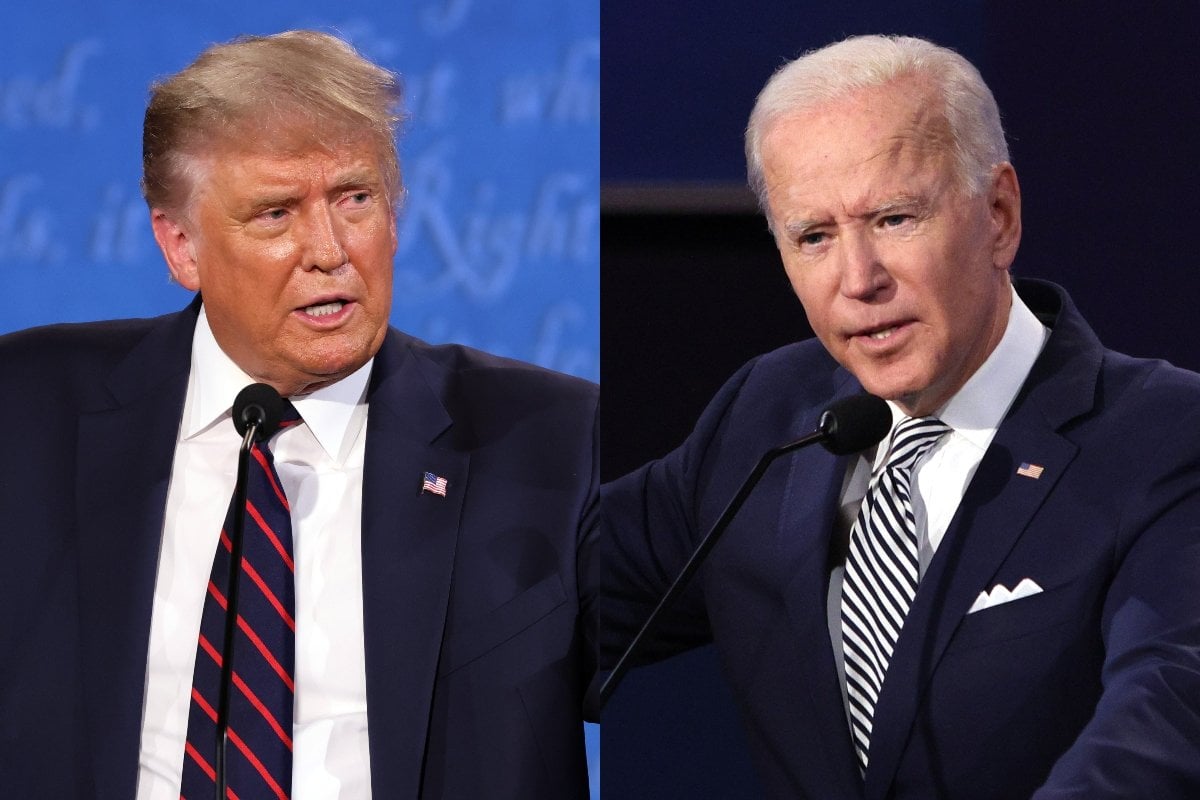
As unfortunate as it may be given their first go, United States President Donald Trump and former Vice President Joe Biden are scheduled to meet twice more for presidential debates ahead of the November 3 election.
Oh, joy.
Debates were set for October 15 and 22, but a lot has happened in the 10 days since debate one: namely, Trump's coronavirus diagnosis and hospitalisation late last week.
Watch: Trump and Biden in the first US presidential debate. Post continues below video.
This week's vice presidential debate between Mike Pence and Kamala Harris ramped up measures, just slightly, with plexiglass screens erected on stage to separate the candidates - both of whom tested negative for COVID-19 ahead of the event.
Then on Thursday (Friday AEDT), the Commission on Presidential Debates announced the second presidential debate will feature the candidates virtually rather than onstage together.
Given 2020, that doesn't sound too out of the ordinary. But not everyone was happy (guess who!)
Just hours later, it appears that debate is now... not happening.
It's all very confusing, and we mostly just feel bad for the poor people at the commission who are no doubt having a really fun day at work.

Top Comments